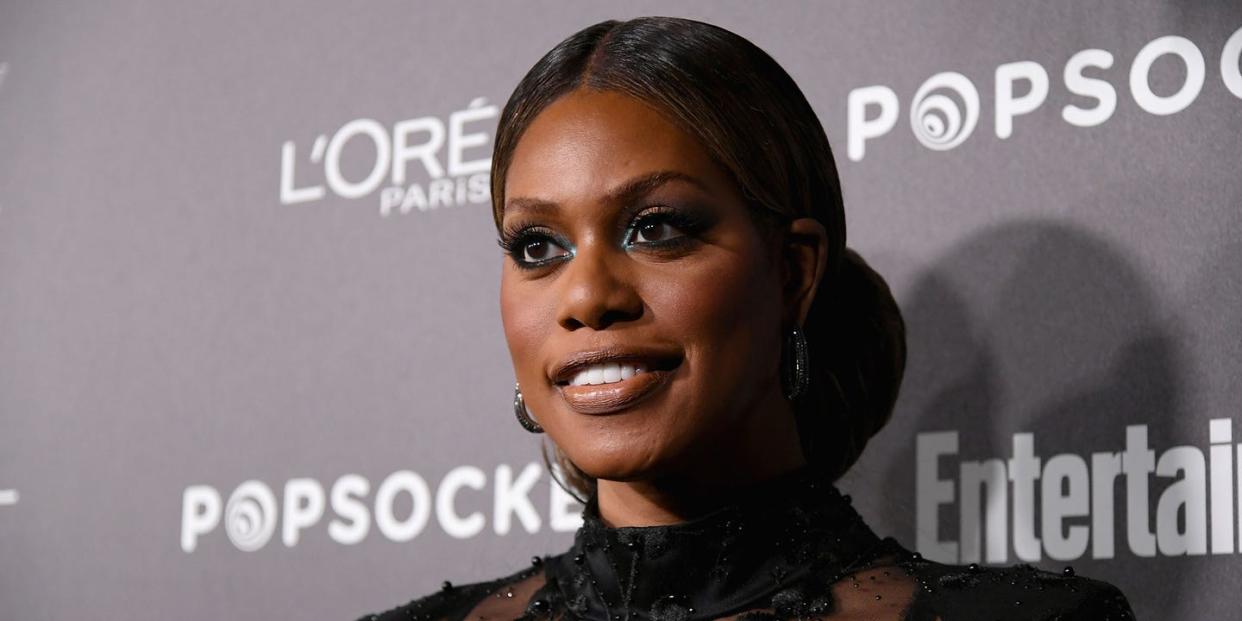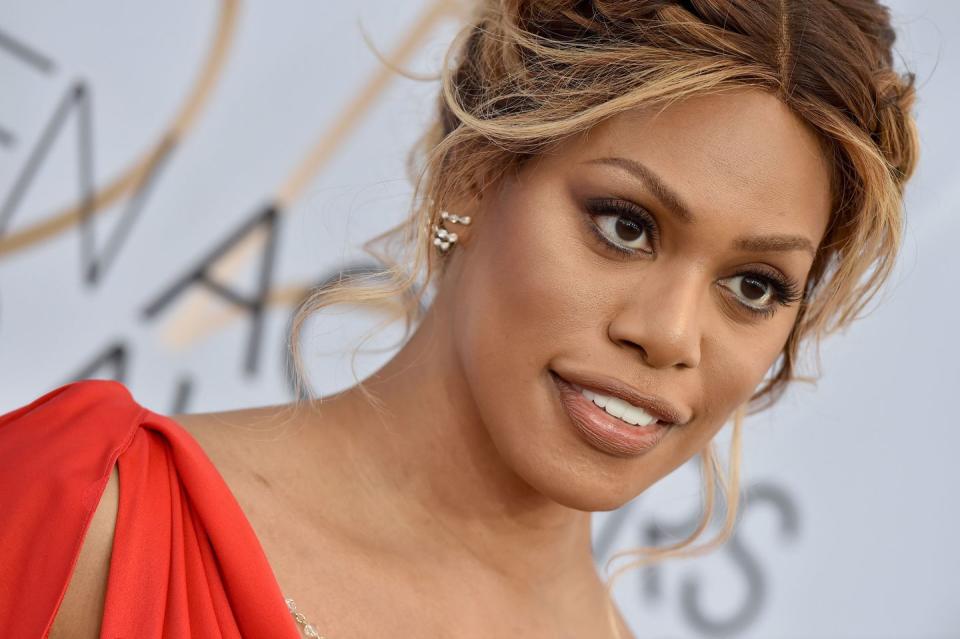Laverne Cox perfectly articulated what we're all getting wrong when we talk about abortion

With the news that the US state of Alabama has passed a bill proposing the banning of abortion in all cases including rape, the entire world - and internet - has rightly drawn parallels between this and the strict abortion legislation in Northern Ireland.
Of course, this has led to incredibly important discussions - like, "Why are 25 white cisgender men (the Senators who voted in favour of the Alabama bill) making decisions about women's bodies and women's rights?"
But as many people have pointed out online, this language is leaving important voices out of the conversation. And activist and Orange Is The New Black actor Laverne Cox summed up the crucial thing so many of us our missing when we debate abortion rights - that it's not just women who are affected by this legislation.
Speaking at Pitzer College's 55th Annual Commencement, she explained what happened after she retweeted a seemingly innocent tweet about the abortion ban. The tweet, originally posted by civil rights activist Michael Skolnik said, "Woman’s body. Woman’s right to choose. End of story."

Laverne's followers were quick to reply to her retweet, explaining there was a glaring error in the language and narrative. "Laverne you're really gonna erase our trans brothers' struggle in this fight by retweeting this? I admire you too much not to call that out. Trans people of all genders are oppressed by the realities and language of this fight, we need to stick together in solidarity," replied one user.
[/pullquote]
What they were saying is simple: it's not just women who fall pregnant. Trans men and non-binary people can, and do, carry babies too. And this language excludes them and their valid experiences from the conversation.
As activist Munroe Bergdorf summed up perfectly in a tweet: "This is absolutely about the policing of women's bodies, but it doesn't stop there."
Sending love to any trans men and non-binary people triggered by the lack of acknowledgement that they may also need access to abortions.
This is absolutely about the policing of women's bodies, but it doesn't stop there.- MUNROE 🌹🌹 (@MunroeBergdorf) May 16, 2019
Shout out to all the trans folx having extra dysphoria with the new abortion bans and talks about "women's bodies"
- liminal nest (@UntoNuggan) May 15, 2019
Remember: It’s not just cisgender women who can get pregnant. Trans and non-binary people already face huge barriers in accessing reproductive health care. Alabama’s abortion ban puts them at even higher risk.
- Supermajority (@supermajority) May 17, 2019
In her speech, Laverne admitted she was taken aback by the response. Like many of us naturally do when we feel questioned, her immediate reaction was to be defensive. "Can I just be in solidarity with my sisters on this issue? Do we have to like make it about all of the complicated nuances of the issue?" she asked herself after seeing the reply.
"I thought, we really don’t need mainstream America to be thinking about transgender men, specifically, pregnant and having babies. It’s really not going to advance the cause of transgender people."
But after her thinking about the points raised by her followers, Laverne tweeted saying she was "processing" what she'd read.
Thank you for this. This discussion has brought up much for me that I am processing. https://t.co/1rxbllLS5f
- Laverne Cox (@Lavernecox) May 15, 2019
After some reflection, Laverne realised trans men, non-binary people and anyone else who is assigned female at birth but doesn't identify as female, are constantly left out of conversations relating to abortion and pregnancy rights. And that is not OK.
"If I were that trans man, I would really want to have language that incorporated and included my experience. Thinking about this reminded me that language is also a place to struggle, but that this isn’t just about being politically correct. This is not just about virtue signalling, that when we use language that excludes groups of people on pertinent issues, it can jeopardise our health and well-being," she said in her speech.
"Language that is appropriate in a fully inclusive way is a matter of life and death for so many people out there. For me, as a trans woman, I can’t get pregnant. I’m very grateful for that! But it’s an issue that I don’t actually have to think about. If you don’t have to think about and deal with something in our own lives that is an incredible privilege. But if we are the person who has to deal with the issue, it is so important to be inclusive and to have our issues dealt with."
She realised many people will want to keep the discussion "simple" and will want to focus on the issue of women's rights. But questioned if it was right to "leave this group of people out?"
"What I would like to remind you of today is that when we are leaving people out, we are not really doing the work to be inclusive," she added.
[h/t Fast Company - where you can watch the full speech]
('You Might Also Like',)

